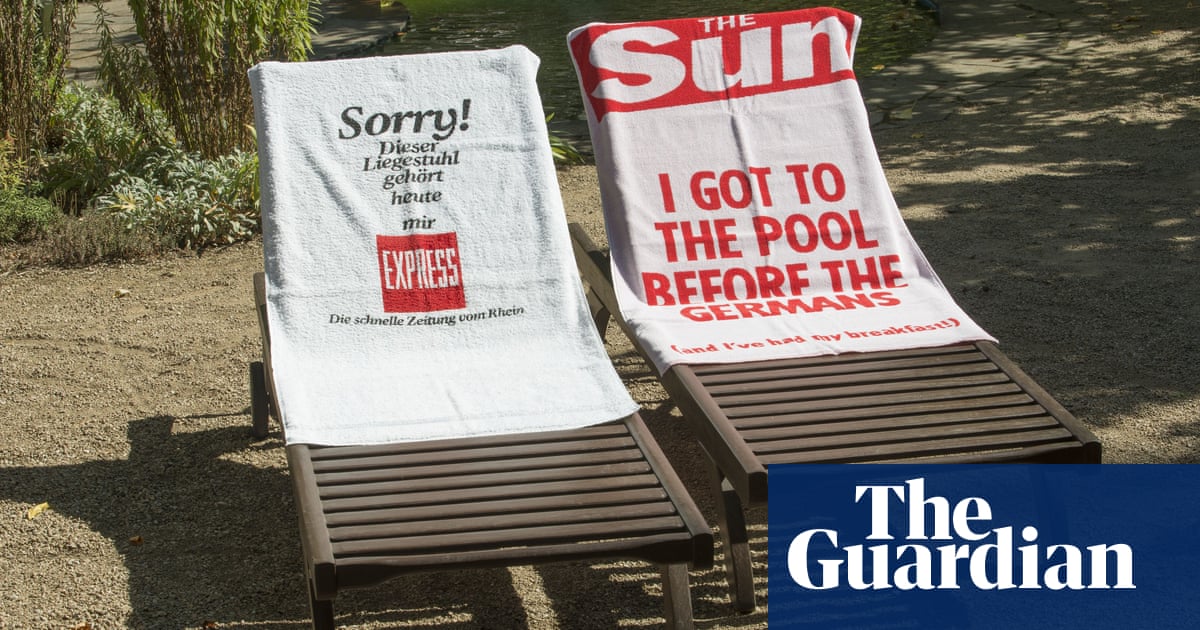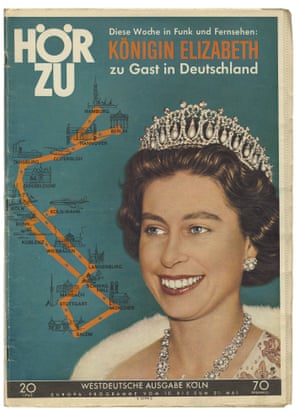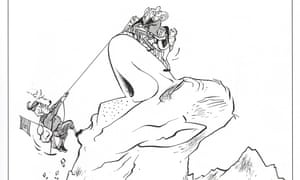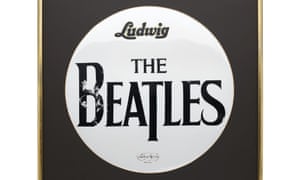Exhibition at Bonns House of History documents unrequited love of all things British

The strategy that Germanys diplomatic corps proposed to keep Britain in the European community was unconventional and bold.
In November 1974, the then German chancellor Helmut Schmidt was desperately searching for the right words to convince British Eurosceptics to vote to remain a member of the European Economic Community.
Schmidt had been offered a generous slot of 10 to 15 minutes at the Labour party conference, but a number of leftwing MPs had already announced they would walk out on his speech if he tried to lecture them.
Katharina Focke, the German federal minister for youth, family and health, had some ingenious advice to offer after an informative meeting with her British counterpart Barbara Castle: The only way to keep Britain in the European Community, she wrote to Schmidt, is not to remind it that it is already in.
Fockes diplomatic cable is on display in the first room of a new exhibition at Bonns House of History, entitled Very British: A German Point of View right next to a digital watch counting down the seconds until Britain is due to depart from the bloc of nations on 31 October.

But the show, which has already attracted 60,000 visitors since opening in July, not only tells the story of Britains effort to first join and then pull out of the
The Germans love the Brits and everything that is British, House of Historys president Hans Walter Htter told the regional newspaper Rheinische Post. In exchange, we have mainly got British reserve.
Britain was not one of the signatories of the 1957 Treaty of Rome that created the European Economic Community, the first major milestone on the road to European integration. But the Bonn exhibition casts the effort to get Britain to join the European communities as one supported by Germany against the resistance of the more or less hysterical French, as the first postwar chancellor Konrad Adenauer put it.

A framed German cartoon from 1967 depicts the UKs journey into
Germanys Anglophilia is shown to be not only political. Seven themed rooms showcase a postwar infatuation with Britains royal family, sport, fashion, music and sense of humour on both sides of the iron curtain.
Poster campaigns and a 1970 industrial fair in London bear witness to socialist East Germanys longing to achieve diplomatic recognition from the UK, all the while as its regime agitated against British cultural influence in public.

Do we really have to copy all the rubbish that comes from the west?, asked East German leader Walter Ulbricht in 1965, after a Rolling Stones concert at Berlins Waldbhne ended in hours of rioting. But the exhibition shows that the Stones and the Beatles found fond imitators not just in Germanys west where groups called the Lords or the Butlers suddenly spring up everywhere but also in the east, where the band Music-Stromers wore uniform jackets reminiscent of those on the cover of Sgt Peppers Lonely Hearts Club Band.
In secret, many East Germans wrote anonymous dispatches to the BBC, many of them emotional and heartbreaking, which are read out on its German-language service every Friday evening from the early 1950s.
In return, what did Germany get from Britain? Admiration for German manufacturing is visually represented here by John Hegartys mould-breaking series of
Curator Christian Peters told the Guardian that the object he was most proud of obtaining on loan for the show was a liturgical robe depicting scenes from the destruction of Coventry and Dresden, worn by the Bishop of Coventry on Ash Wednesday.

The show could have added chapters on exploring Britains enthusiasm for all things Germanic in the 18th, 19th and 21st century, from Wordsworth and Coleridges interest in German Romantic poetry to the import of Christmas tree customs, and from Kraftwerk tribute bands to the sanctification of Liverpool coach Jrgen Klopp.
As it stands, it finds the British view of Germany in the 20th century to be dominated by reenactments of the second world war by peaceful means, from Escape from Colditz board games to the beach towel war made fun of in countless newspaper headlines, cartoons and advertising campaigns.
When Germany moves towards reunification after the fall of the Berlin wall, Margaret Thatcher is the most vocal sceptic in the west, the British press conjures up images of revitalised German soldiers in spiked helmets, and leaked minutes from a meeting with historians at Chequers list Germanys supposed national characteristics as egocentric, arrogant and aggressive.
A coldness between the two countries is sometimes just as notable, however.
When president Theodor Heuss makes the first official postwar visit of a German politician to the UK in 1958, he is photographed facing a group of standoffish Oxford students with their hands in their pockets and spends the next weeks assuring the German public that this was not so much a sign of disrespect as a pose fashionable with the British youth of today.
At the exhibitions exit, visitors are met by a plastic merchandise figurine of Queen Elizabeth II, who waves them an unenthusiastic goodbye with a polite smile and a mechanical tilt of the wrist.
Original Article : HERE ;
The post Beach towels and Brexit: how Germans really see the Brits appeared first on MetNews.
from MetNews https://metnews.pw/beach-towels-and-brexit-how-germans-really-see-the-brits/
No comments:
Post a Comment